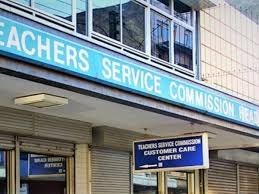TSC 4 Areas: Primary to Secondary Teacher Transition Determination.
Most primary school teacher (s) employed by the Teachers Service Commission (TSC) always have a wish to transition to secondary education but the big question is how is it done.
Transition from primary teacher to secondary school teacher is always possible upon meeting certain prerequisites set by the teachers’ employer ( TSC)
These requirements include;
1.Having P1 Certificate
Holding a P1 Certificate fir a primary school teacher serves as an evidence showing your completion of primary teacher training successfully.
This lays the basis for advancement to the next level.
2.Having Relevant Educational Qualifications
TSC recommends that one must Posses a Bachelor’s Degree in Education (BEd) in addition to the mandatory two teaching subjects.
Any other degree apart from the above listed is not recommended by TSC due to lack of coverage in important content areas.
3.Meeting Academic Standards
According to TSC , teachers who have p1 certificate and have persued a degree must also have obtained a minimum of a C+ in the two teaching subjects inorder to be considered.
4. TSC Employment status
For one to be considered for transitioning from primary,the individual teacher must have been currently employed by the Teacher Service Commission on permanent and pensionable terms.
As a result, the Teacher Service Commission, who employs all teachers, has precise requirements that must be met in order to advance from elementary to secondary school teaching.
Therefore, make sure that your documents comply with the requirements stipulated under the teaching profession, regardless of whether you hold a diploma or a degree certificate and are a primary school teacher.
It should be noted that there are some advantages to moving from teaching in primary to secondary schools, including higher pay and perks and increased mental satisfaction.
It also establishes a foundation for your professional growth as an educator, as more assertive teachers may use it to advance to different administrative roles.




![Kenya’s Top 10 Marketable Degree Programs [List] Kenya's Top 10 Marketable Degree Programs [List]](https://opportunitiesforkenyans.co.ke/wp-content/uploads/2025/02/Kenyas-Top-10-Marketable-Degree-Programs-List-100x70.jpg)

